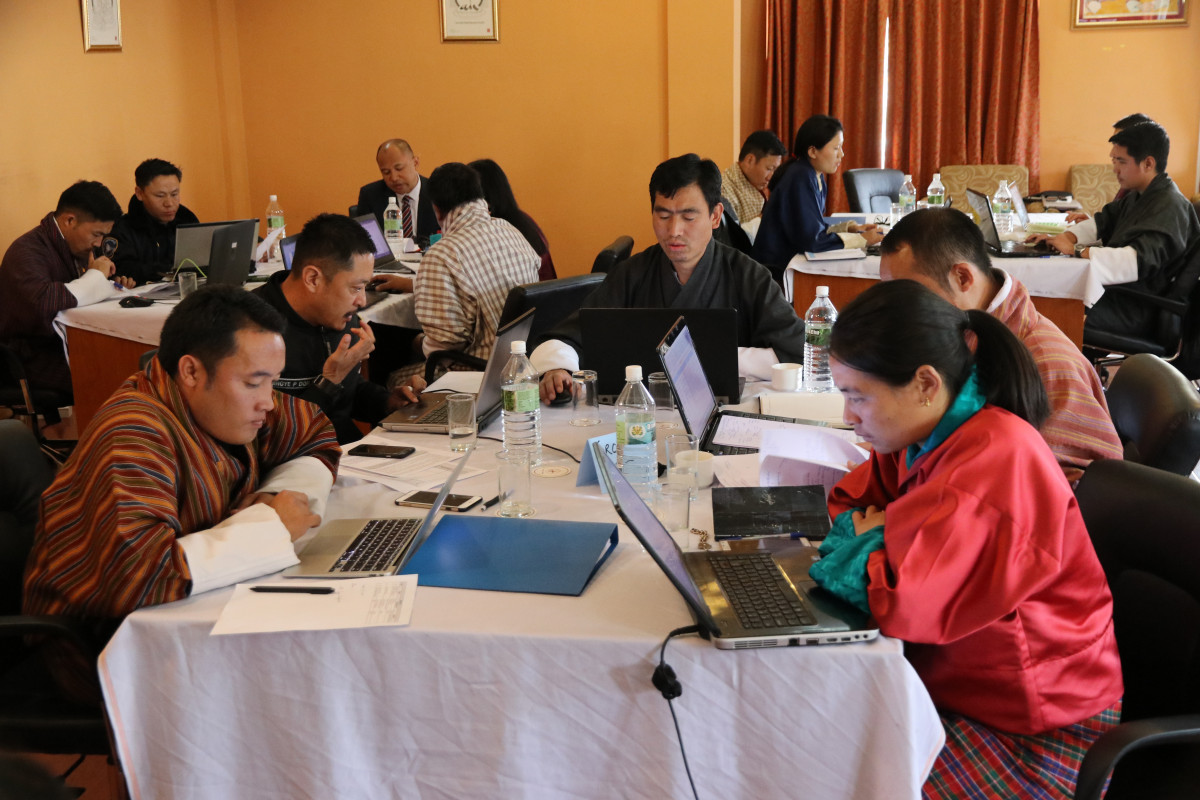Bhutan ACC Commissioner praises inter-agency collaboration and support at 4th ICAR training workshop

At the recent closure of the International Centre for Asset Recovery (ICAR) fourth workshop in Bhutan, the Honourable Commissioner of the Anti-Corruption Bureau of Bhutan, Karma Damcho Nidup, emphasised the fact that corruption was not only the purview of the ACC: “It is our collective problem. We need to find collective solutions and we need to address it collectively.”
As a result of the recommendations and needs of law enforcement agencies and the positive feedback of participants who attended past ICAR workshops, the ICAR training team conducted its 4th workshop on “Financial Investigations and Asset Recovery” in Thimphu, Bhutan during 13 – 17 November 2017. It included 34 participants from a total of 17 agencies/entities.
This workshop coincided with deliberations before the Bhutanese National Council on the Anti-Money Laundering and Countering Financing of Terrorism Bill, 2017 (AML/CFT Bill). The ICAR experts used this opportunity to discuss the proposed provisions in the Bill, which criminalise money laundering in line with international standards and provide wide-ranging freezing powers to the FIU. Bhutan ratified the United Nations Convention Against Corruption (UNCAC) in 2016, and is currently under review, thus emphasising the importance of a standalone AML/CFT Bill, which can further strengthen the country’s hand in its fight against corruption and money laundering. This Bill seeks, amongst other aspects, to address the deficiency in the Anti-Corruption Act, 2011, which prevents a prosecution for self-laundering in contravention of UNCAC.
The training was geared towards creating a greater understanding of corruption, money laundering, Mutual Legal Assistance, asset tracing and recovery, financial investigative techniques, financial and electronic evidence, and challenges in investigating, prosecuting and adjudicating corruption in Bhutan. It aimed at equipping participants to handle complex issues of financial investigation and asset recovery in their respective roles as investigators, prosecutors or adjudicators, and drew attention to the role played by other relevant stakeholders such as financial institutions and insurance companies.
As a result of the excellent co-operation between the ACC and Basel Institute over the years, a Memorandum of Agreement was signed between the two parties on 24 May 2017. The agreement, among others, includes the provision of professional training, i.e. seminars and conferences, and exchanging experiences to detect and prevent corrupt acts. This fourth workshop has come about in the spirit of this Agreement.


